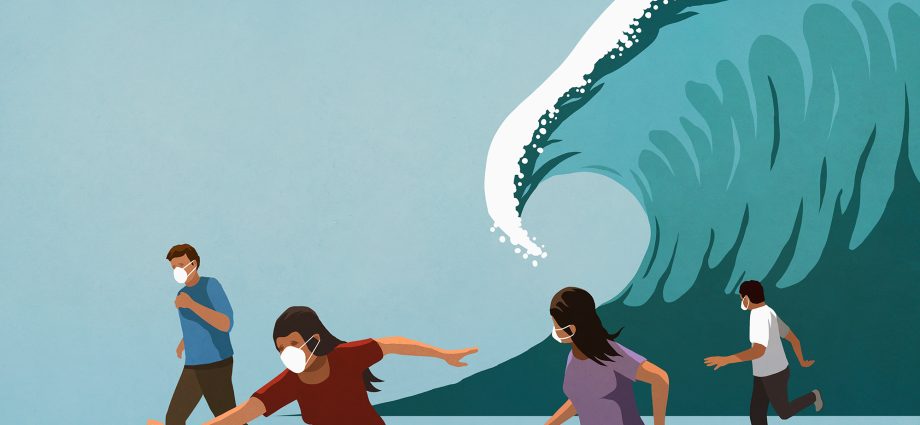Contents
The whole world turned upside down. Several of your friends have already lost their jobs or went bankrupt, one of your friends is seriously ill, another has panic attacks in self-isolation. And you are haunted by feelings of shame and embarrassment due to the fact that everything is fine with you — both with work and with health. By what right are you so lucky? Did you deserve it? Psychologist Robert Taibbi suggests recognizing the appropriateness of guilt and letting it go by choosing new ways to act.
For several weeks now, I have been advising clients remotely, via the Internet. I regularly get in touch with them to find out how they are coping, and to the best of my ability to support. Not surprisingly, most of them are now experiencing anxiety.
Some cannot pinpoint its source, but a vague sense of unease and fear has turned their entire daily lives upside down. Others clearly see the reasons for their anxiety, it is tangible and concrete — these are worries about work, financial situation, the economy as a whole; worries that they or their loved ones are getting sick, or how elderly parents who live far away are coping.
Some of my clients also talk about guilt, some even use the term survivor’s guilt. Their jobs are still assigned to them, while many friends are suddenly out of work. Until now, they themselves and their relatives are healthy, while one of their colleagues is sick, and the death rate in the city is growing.
This acute feeling is experienced by some of us today. And it’s a problem to be solved
They must keep the isolation, but live in a spacious house with electricity, water and food. And how many people live in a much less comfortable environment? Not to mention prisons or refugee camps, where initially there was a minimum of amenities, and now cramped conditions and poor living conditions can dramatically worsen the situation …
Such an experience is not quite commensurate with the painful, tormenting guilt of those who survived the terrible catastrophe, the war, witnessed the death of loved ones. And yet it is in its own way a keen feeling that some of us are experiencing today, and it is a problem that needs to be addressed. Here are some suggestions.
Realize that your reaction is normal
We are social beings, and therefore compassion for others comes naturally to us. In times of crisis, we identify not only with those close to us, but with the entire human community.
This sense of belonging and guilt is entirely justified and reasonable, and comes from a healthy receptivity. It awakens in us when we feel that our core values have been violated. This feeling of guilt is caused by the realization of an injustice that we cannot explain and control.
Support loved ones
Your task is to turn the destructive feeling into constructive and supportive action. Reach out to those friends who are now out of work, offer whatever help you can. It’s not about getting rid of guilt, but about restoring balance and aligning your values and priorities.
Pay another
Remember the movie of the same name with Kevin Spacey and Helen Hunt? His hero, doing someone a favor, asked this person to thank not him, but three other people, who, in turn, thanked three more, and so on. An epidemic of good deeds is possible.
Try to spread warmth and kindness to those outside of your inner circle. For example, send groceries to a low-income family or donate money to a charity to help sick children. Does it matter globally? No. Does it make a big difference when combined with the efforts of other people like you? Yes.
Realize that you are no exception.
To maintain peace of mind, it can be useful to stop, appreciate what you have with gratitude, and honestly admit that you were lucky to avoid some difficulties. But it is equally important to understand that sooner or later everyone will have to face life’s problems. You can make it through this crisis unscathed, but be aware that at some point life may challenge you personally.
Do what you can for others now. And maybe someday they will do something for you.
About the Author: Robert Taibbi is a clinical social worker with 42 years of experience as a clinician and supervisor. Conducts trainings in couples therapy, family and short-term therapy and clinical supervision. Author of 11 books on psychological counseling.










